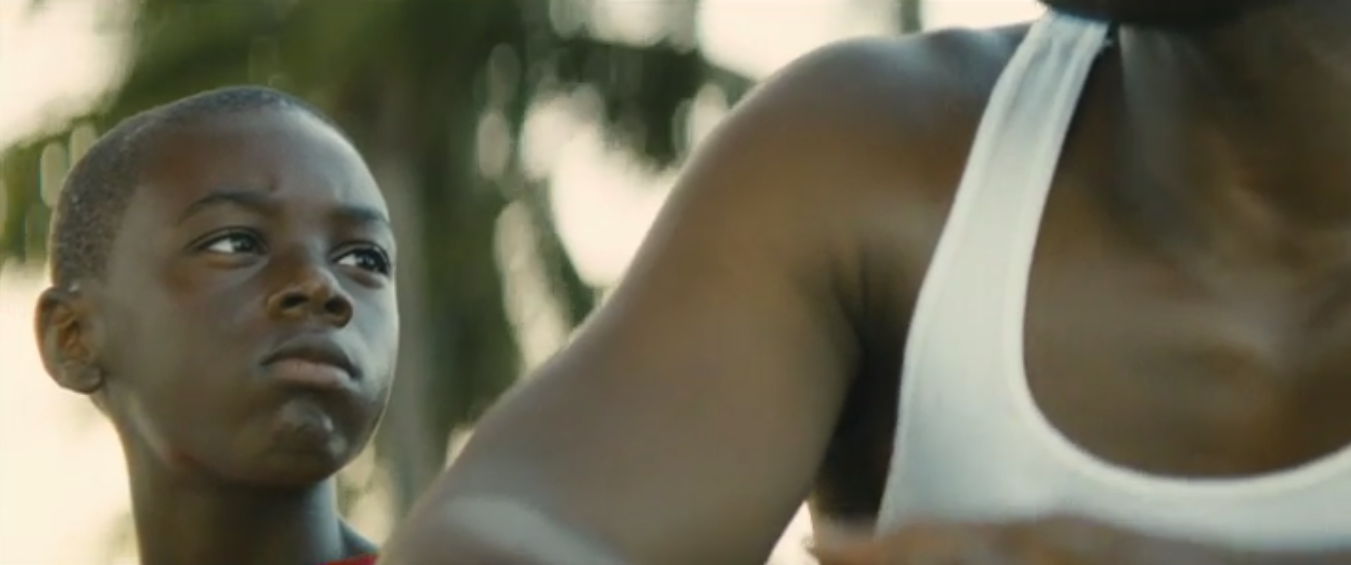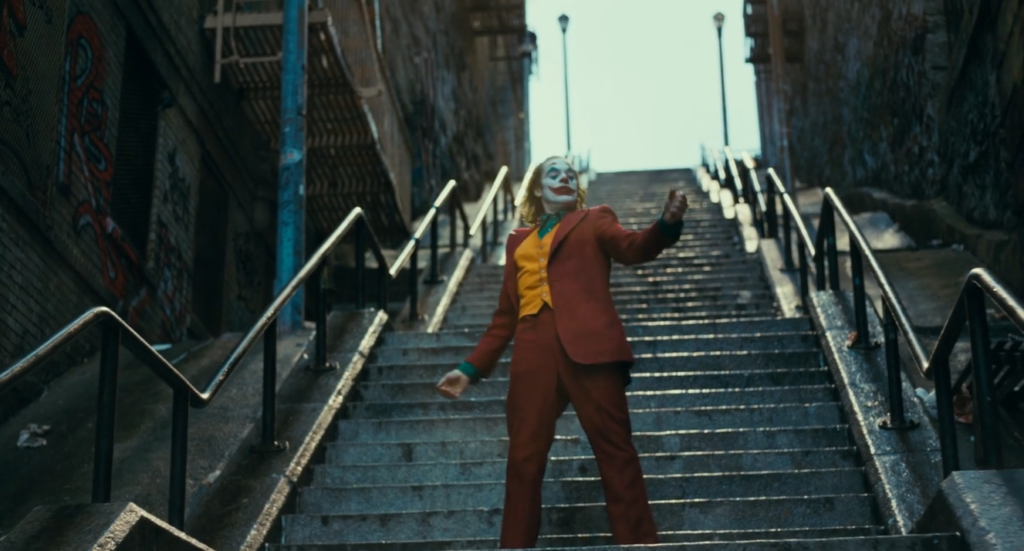Shot Distances
CU – (Close Up)
I’ve chosen this shot to talk about close ups as it shows the claustrophobic and suffocating feeling that Chiron has when being bombarded by his addict mother. Chiron is subject from a young age to substance abuse through his mother and this scenes close focus on Chiron’s mothers desperate and deluded facial expressions helps to illustrate how Chiron feels about his mother and her issue.

LS – (Long Shot)
I’ve chosen this shot to talk about long shots as it shows how Chiron is helpless in his situation. As his bullies leave the scene on the left, Chiron tries to subtly make himself big and intimidating, but as the shot type is so wide, it shows that Chiron is out of his field here, and that he is a lot more vulnerable than he would want to be.

M/CU – (Middle to Close Up)
I’ve chosen this shot to talk about middle to close up’s as it shows the audience what Chiron’s situation is, and how it’s framed so personally with the waves washing over the camera makes the audience feel as if we are with Chiron in this moment, but also understand his feeling of being drowned out and lost in his own life, being neglected by his mother and bullied by his fellow students.

Shot Angles
High Angle
I’ve chosen this shot to talk about high angles because it shows the intimate relationship between Chiron and Kevin. This is a moment of calm in the film, with the characters relaxing on the beach smoking a blunt. This calm is subtly broken by both Chiron and Kevin looking directly into the camera from this high angle, creating a sense of compromise and vulnerability.
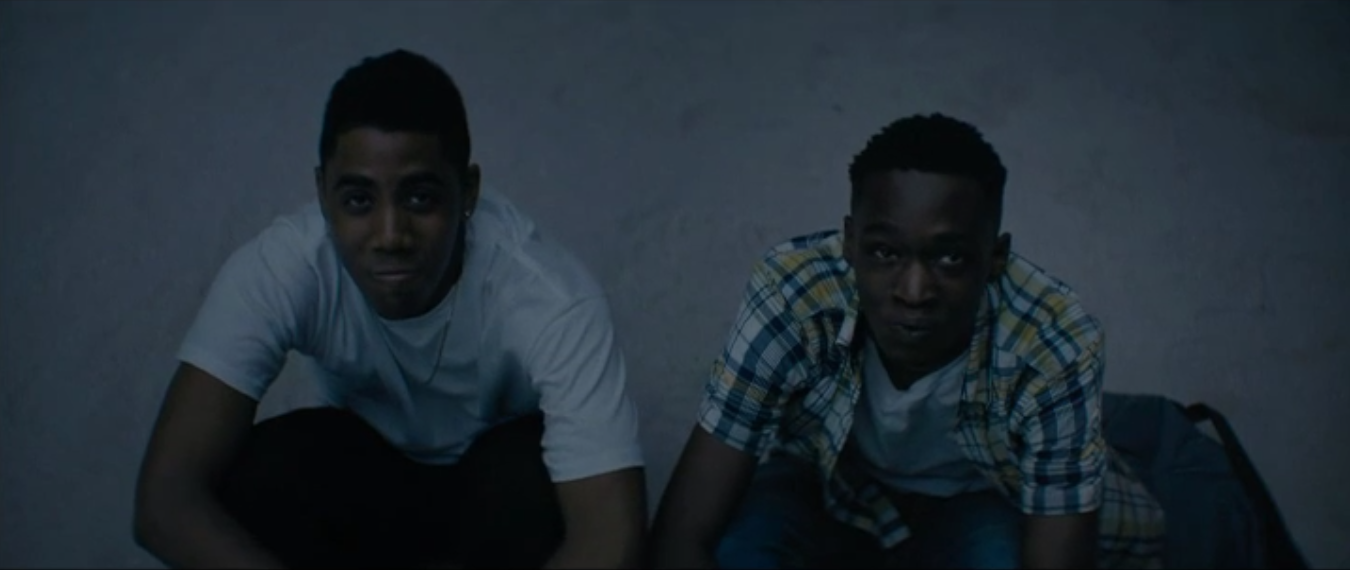
Eye Level Shot
I’ve chosen this shot to talk about eye level shots because it shows Kevin’s initial reaction to see a grown-up Chiron. This prolonged and level shot with Kevin staring directly into the camera puts us in Chiron’s shoes and lets us feel how Chiron feels when Kevin sees him again for the first time since they were teenagers, and with the contexts we have of their relationship, we can accurately match Chiron’s emotions as an audience. This allows us to really envelop ourselves in these characters dynamics.
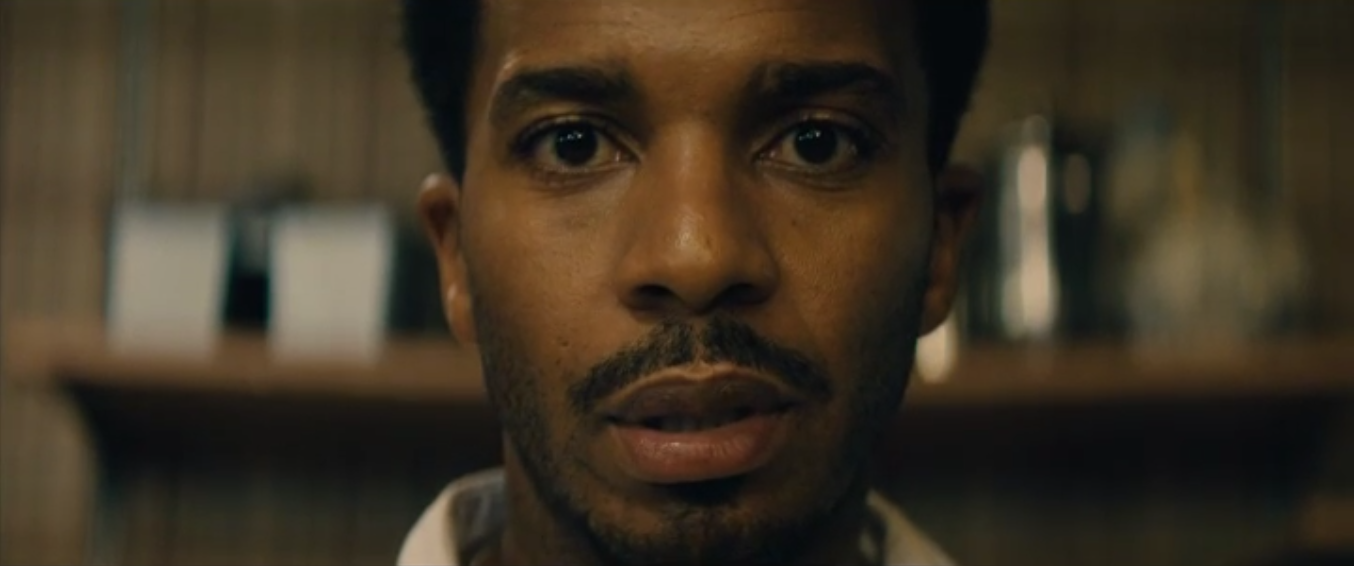
Low Angle
I’ve chosen this shot to talk about low angles because it also puts us in Chiron’s shoes, but this time it’s so that the audience can connect with the pain he’s being subject to, both physically and mentally. We’re shown Chiron’s bullies kicking him and beating him up from his perspective and we get to understand that his struggle is a direct cause of Kevin succumbing to peer pressure and we as an audience can connect that this is both a betrayal and a humiliation for Chiron. This allows us to connect with Chiron even more, as we get to feel his pain through the camera angle.
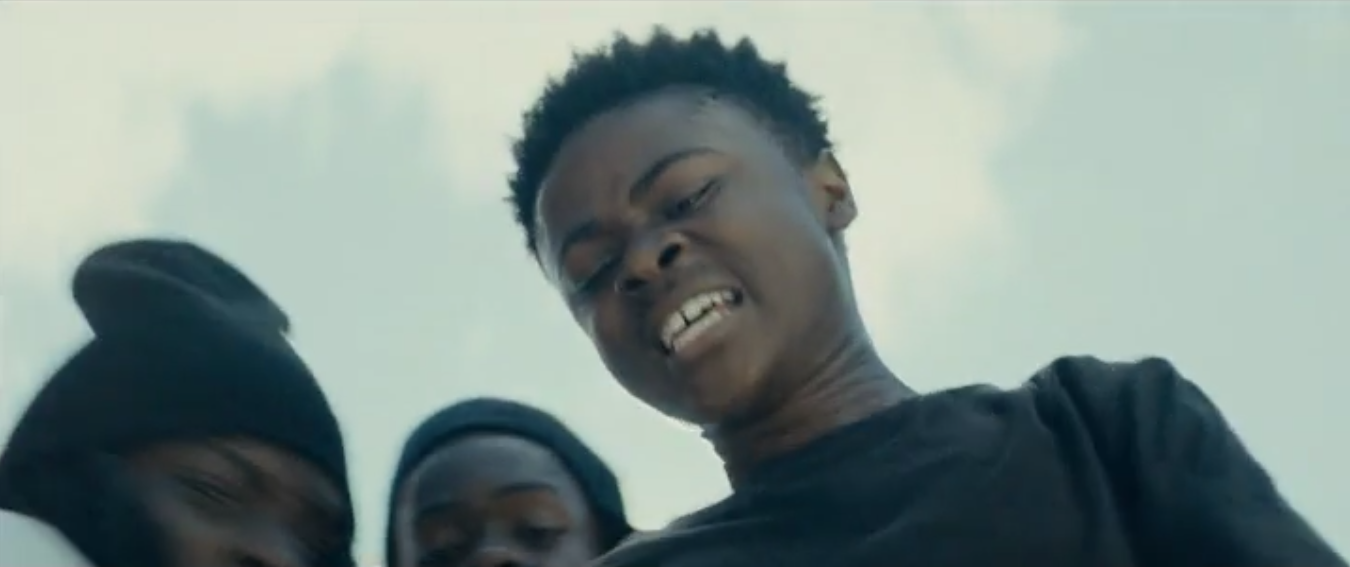
Shot Movement
Handheld Cam
I’ve chosen this shot to talk about handheld camera shots as the disorientating and wobbly shakes that the track has makes us as an audience understand the feeling of being an addict and being under the influence. As Chiron’s mother tries to get Chiron to unlock the house, the camera follows her towards the house with an uneven distance from the camera and her, and an unpredictable shake with each movement, making the audience feel disconnected and confused during the scene. This helps us empathise and understand Chiron’s situation with his mother and her drug problem.
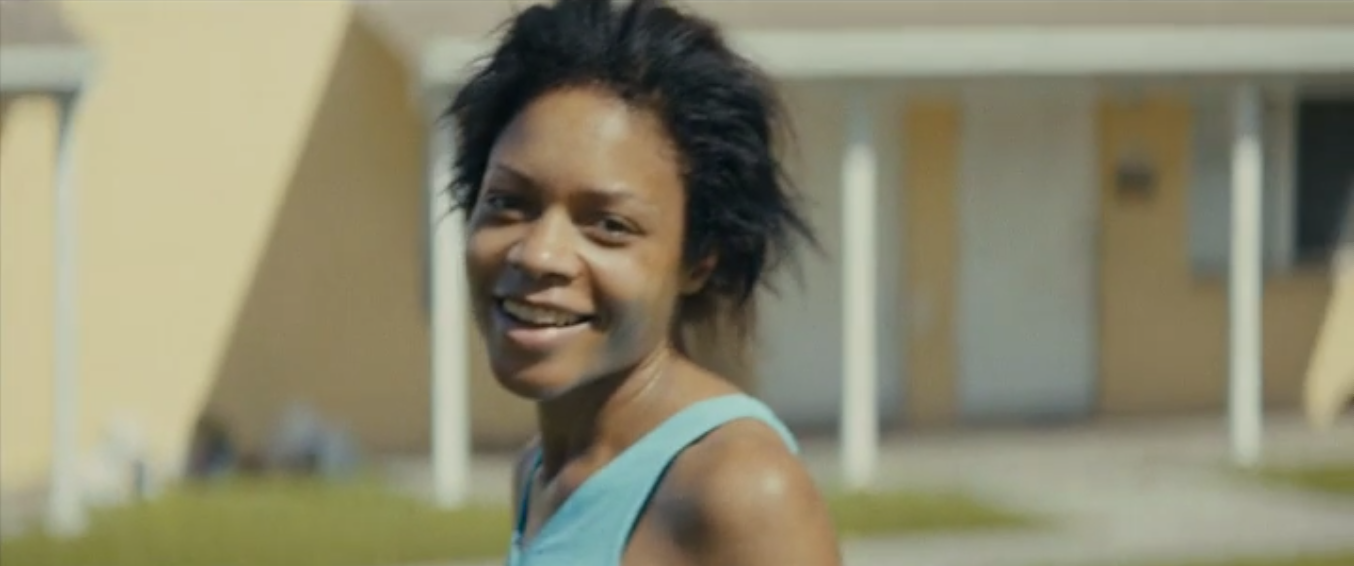
Tracking Shot
I’ve chosen this shot to talk about tracking shots as this extended following shot of Chiron’s journey to his classroom, where he inevitably attacks Terrel with a chair, allows us to visualise Chiron’s emotional process as he approaches his revenge towards his bullies. In moments throughout the fast-paced track, we see Chiron slow down and take a beat to reconsider his intentions, before he starts pushing ahead again, sealing his fate. This long track creates impact by showing us how motivated Chiron is to regain control in his life.
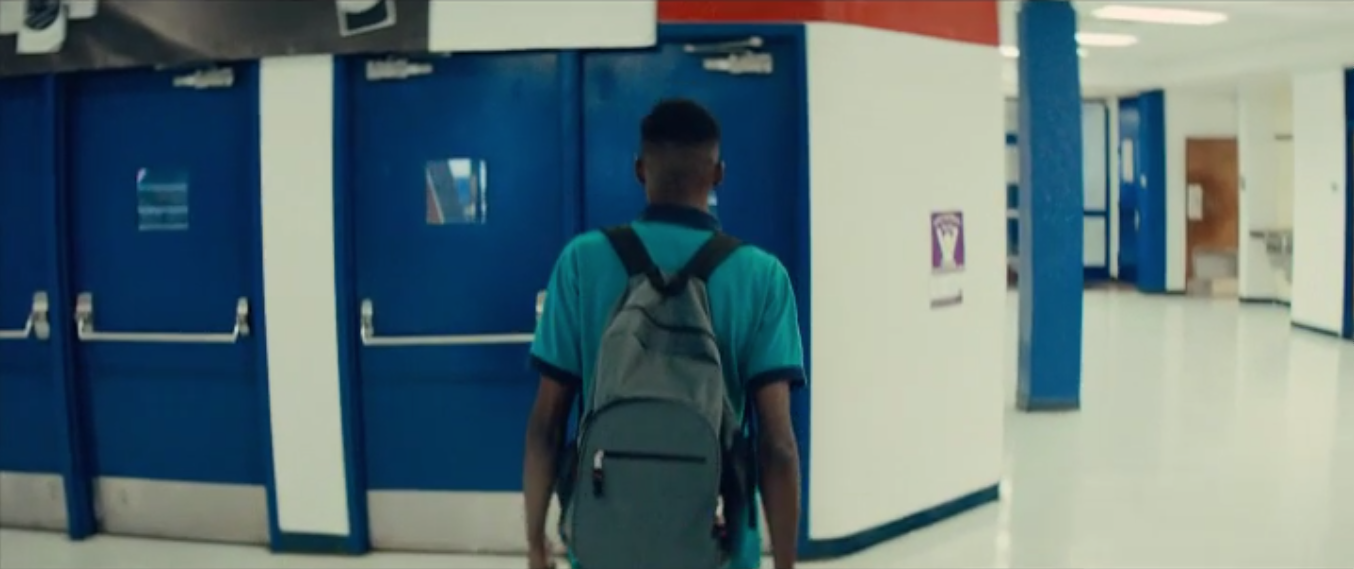
Camera Pan
I’ve chosen this shot to talk about camera pans as it shows us the relationship between Chiron and Juan. As Juan speaks to Chiron, the camera pans diagonally towards Chiron who is staring up at him with focus, showing how he admires Juan as a pseudo-father figure in his life, and how Juan is the only person that Chiron has to look up to in his life, as his mother neglects his well-being frequently across the movie. The pan also helps to tell the audience about how Juan feels in this scene, as he is not focusing on Chiron. This shows Juan’s hesitation to help and nurture Chiron as he knows about his home and personal situation, and knows that even now he’s overstepping a boundary.
